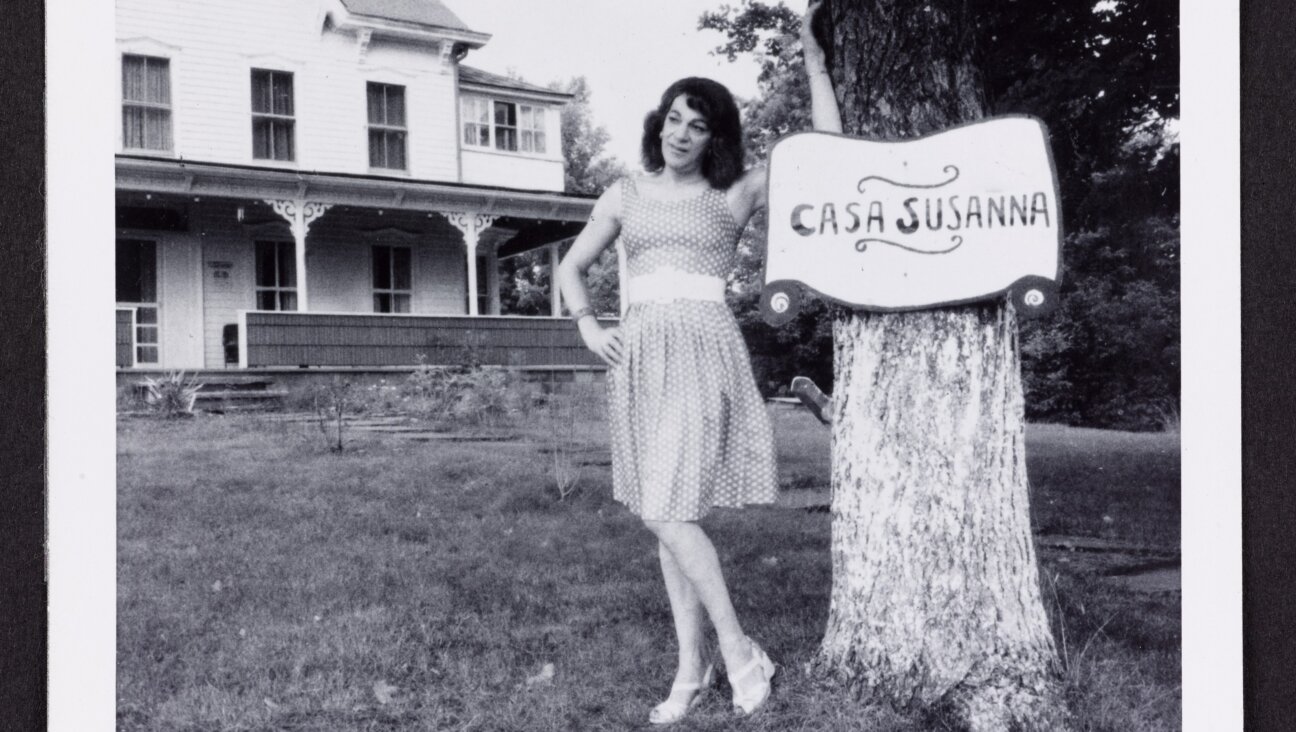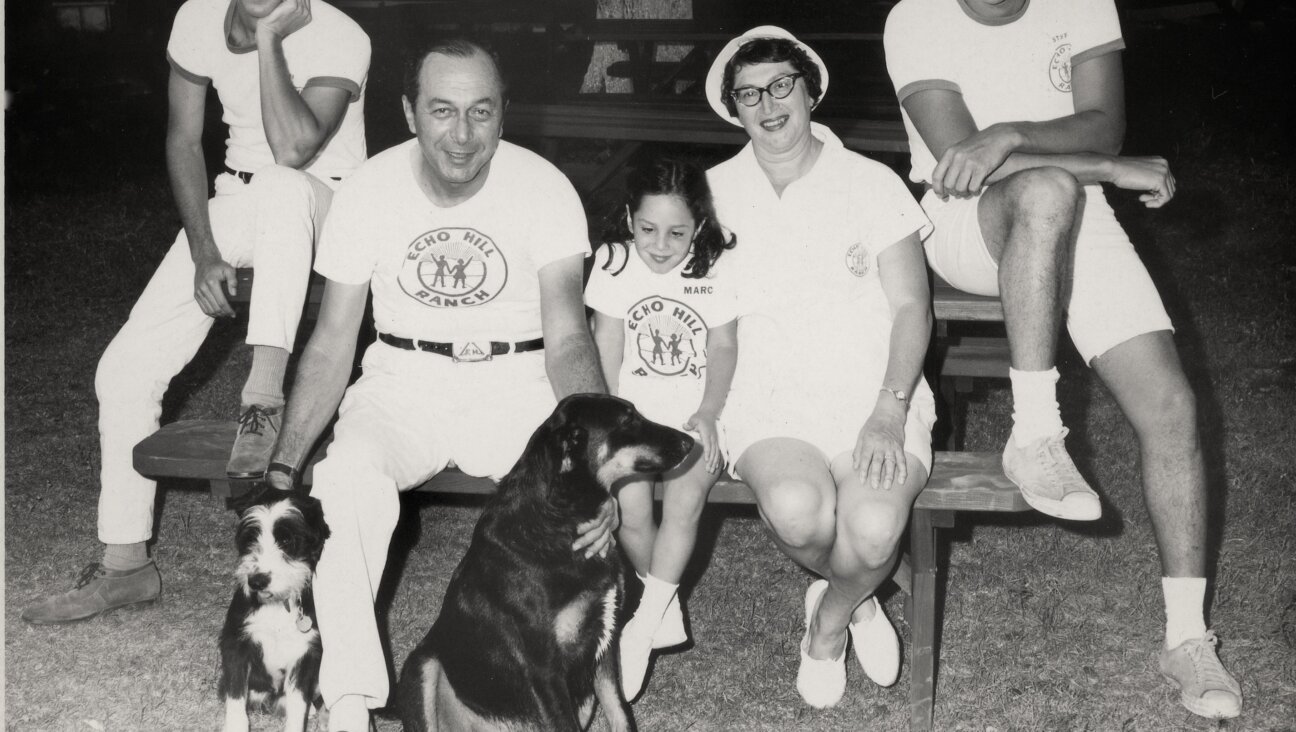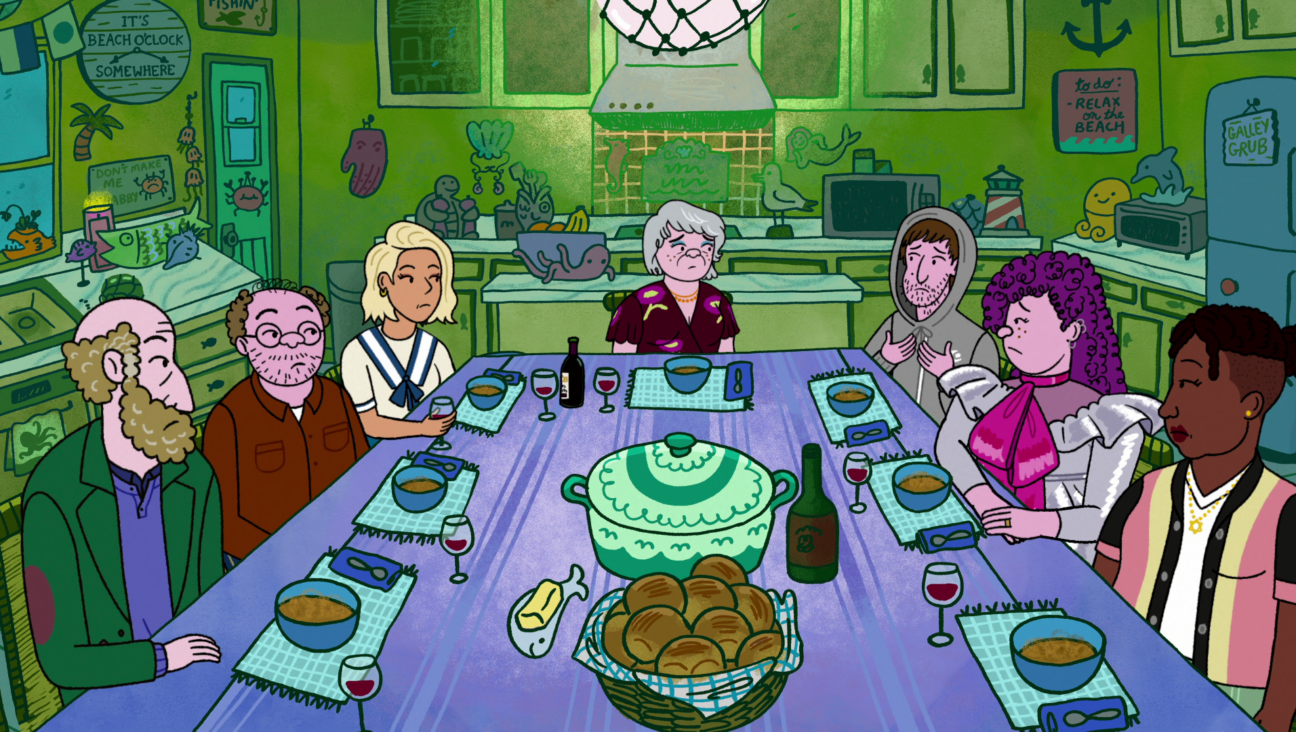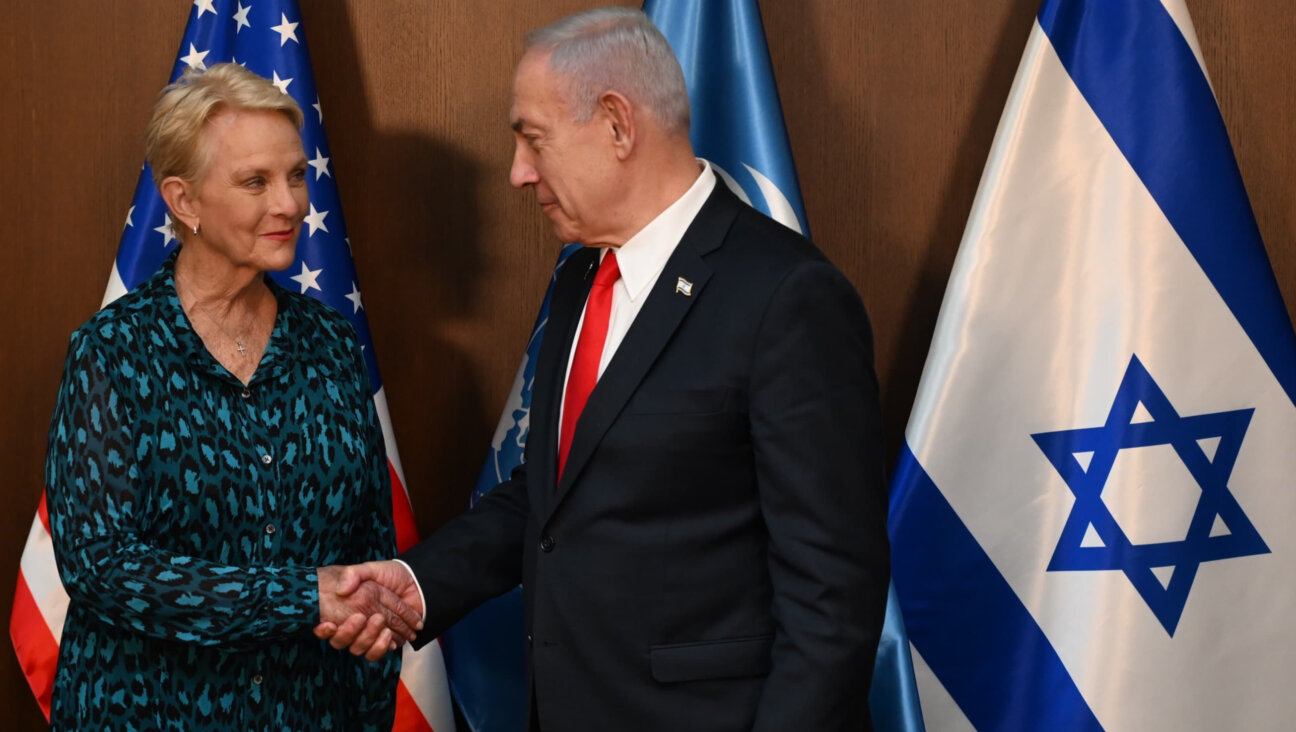An Israeli and an Iranian step onto a judo mat — and make a thriller about a forbidden relationship
Guy Nattiv and Zar Amir Ebrahimi’s ‘Tatami’ is a gripping story that mirrors its own international production
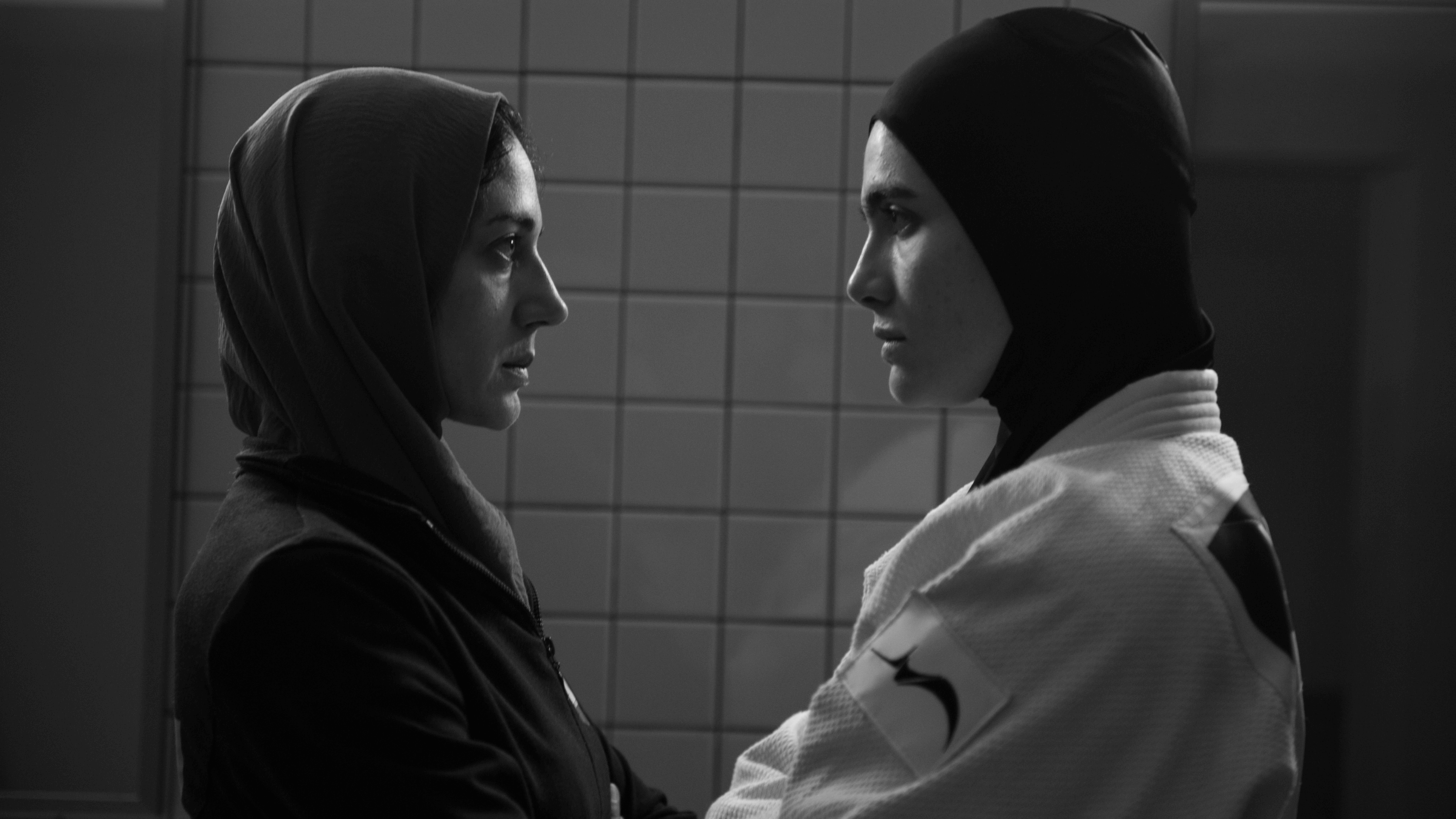
Zar Amir Ebrahimi and Arienne Mandi in Tatami. Courtesy of XYZ Films
A judo fighter is on the tatami mat representing her country. She’s moving up the tournament ranks, bout after bout. Victory is in sight when her coach gets a call.
“She should withdraw.”
It’s the fighter’s, or judoka’s, government on the other line. If she keeps advancing, she risks engaging with a country that her own refuses to recognize.
This is the story of Tatami, co-directed by Israeli filmmaker Guy Nattiv and Iranian-born actress Zar Amir Ebrahimi, who plays the Iranian coach Maryam.
The film is fiction but the scenario is based in fact. Iranian athletes regularly face pressure and threats from the Islamic Republic over competing against the “Occupying Regime” of Israel. In the 2019 Judo World Championship in Tokyo, fighter Saeid Mollaei was ordered to throw a match to avoid a fight with Israeli champion Sagi Muki. Mollaei informed the press and, fearing the reprisal, moved to Europe with the help of the International Judo Federation. He is now a Mongolian citizen and won silver at the 2020 Olympics. He dedicated the medal to his adopted country and to Israel. (Iran faced a four-year ban from the IJF for not letting Mollaei and others fight Israelis. It was later overturned.)
Nattiv, an Oscar winner for his short film Skin and director of the Golda Meir biopic Golda, took inspiration from Mollae when he started work on Tatami. But after an Iranian woman, Mahsa Amini, died under suspicious circumstances while in police custody for allegedly wearing her hijab incorrectly, Nattiv made the protagonists women, reflecting the Woman, Life, Freedom protests Amini inspired.
“Judo is very famous in Iran and in Israel,” said Nattiv from his and Ebrahimi’s hotel in New York, where the film is debuting at the IFC Center June 13. It’s also a sport grounded in respect. “Your opponent is not your enemy, you have to bow, you have to respect her. And we felt it’s the right sport to tell this story,”
The actual production of the film mirrors the forbidden relationship between Israelis and Iranians, though Nattiv considers himself an international filmmaker and is based in Los Angeles, and Ebrahimi fled Iran for France in 2008, after an intimate tape of her and her boyfriend leaked, putting her at risk of imprisonment and lashing.
Ebrahimi, who won best actress at Cannes in 2022 for her performance in Holy Spider, was involved in casting for the film, and, after Nattiv cast her as Maryam, was offered the chance to co-direct.
“I took my time,” Ebrahimi, in the room with Nattiv, said of the decision to co-direct. “It’s not easy to take this risk. It’s a red line for my government” to partner with Israelis. Since we spoke on Tuesday, it’s been reported Israel was considering an imminent strike on Iran, meaning the film’s U.S. release may overlap with a period of historically high tensions between the two countries.
But the more Ebrahimi discussed the project with Nattiv, who penned the screenplay with Iranian-French writer Elham Erfani, Ebrahimi decided making the film was more important than her security.
“We are not allowed to tell this kind of story in Iran,” she said.
But it is a fundamentally Iranian story. Focusing on a young judoka, Laila (Arienne Mandi), the film is a tense political thriller, almost entirely in Farsi and fueled by a rap score by Persian artist Justina, who has a cameo.
Filmed on location in Tbilsi, Georgia, the action cuts from the fights to the machinations of the Iranian regime, which threatens Laila’s family as she advances further into the tournament. Tatami is shot in black and white as a nod to film noir and to Akira Kurosawa, whose first film, Sanshiro Sugata, was about judo. The aspect ratio forms a box, recalling the tatami mat and adding to the claustrophobia the characters feel as Iranian officials close in.
Most striking about the film, despite the involvement of an Israeli director-writer, is how small a part the Israeli opponent plays beyond serving as a catalyst for the action. Her only lines of dialogue are a civil greeting where she asks after Laila’s son and husband. In the brief interaction, Tatami shows how governments can get in the way of recognizing a common humanity beyond borders.
“It’s all about totalitarian governments,” said Nattiv. “The Iranian regime, Russian regime, Israeli regime, even in America, like you can see that authoritarian more and more.”
Ebrahimi, who left Iran after being banned from Iranian film and television for a decade and was interrogated by Iranian security forces, experienced this kind of repression firsthand. She worked with Nattiv to ensure authenticity, directing the scenes in Farsi while he was at the camera. But while Ebrahimi managed to escape, she says she’s careful not to suggest that leaving always means finding your freedom.
Refugee athletes, including the boxer Sadaf Khadem, who worked as a consultant on the film, still have trouble being recognized, even as they compete on refugee teams. Not every competition will accept them and many face problems with paperwork.
“I lived the same thing,” Ebrahimi said. “I couldn’t travel; I couldn’t work in some countries.”
Though there is increasing pressure on artists to boycott Israel, a restriction sometimes applied to individual Israelis, Nattiv and Ebrahimi say that they haven’t encountered pushback; they see the film as an international project, and proof that they have more in common than what divides them.
“I think it’s universal,” Ebrahimi said. “It’s all about surviving.”



